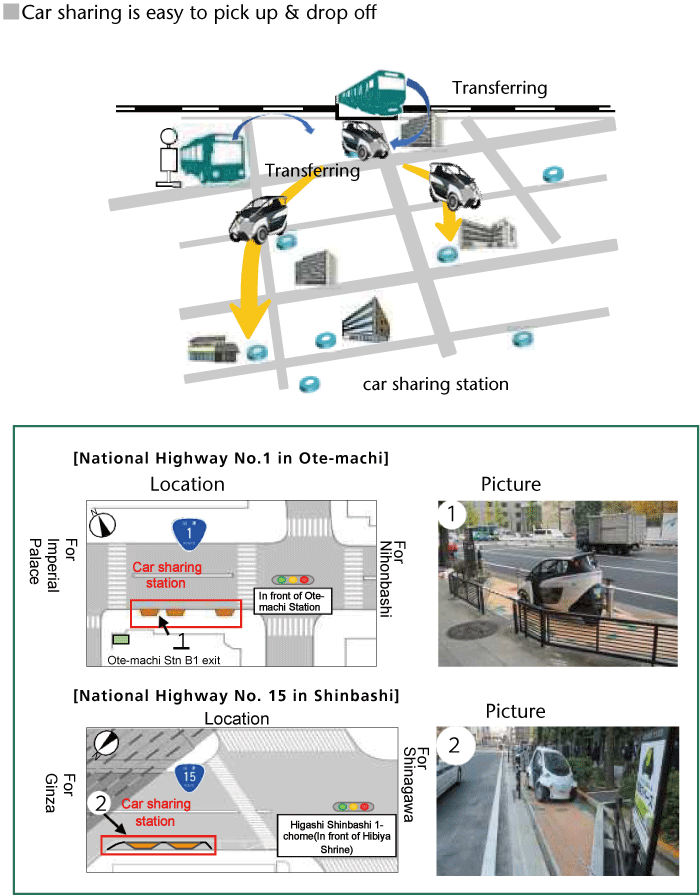Modal Connect
Enhancement of modal connect (a bus-oriented road measure)
The level of buses services in Japan is poor and far from user-oriented. It is necessary to improve convenience of bus and other public transport based on the current situations of expressways, railways/shinkansen networks in regions.
This includes a pilot project and practical application of “Busta Project” (Bus terminal project), which improves accessibility of bus stops through a cooperative role sharing between public and private sectors by fully using ITS and PPP.
Under the cooperation with city planning and local public transport policy, the MLIT aim to strengthen connection between various traffic modes, to revitalize the area and strengthen disaster response.
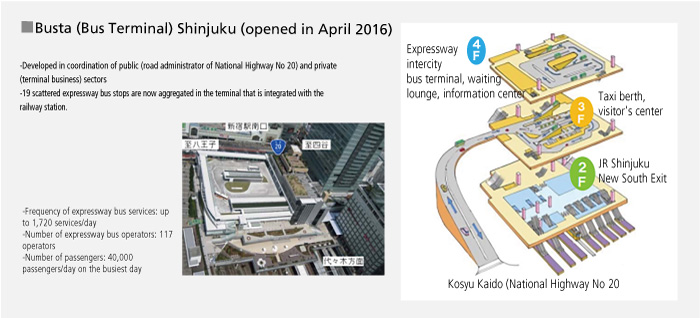
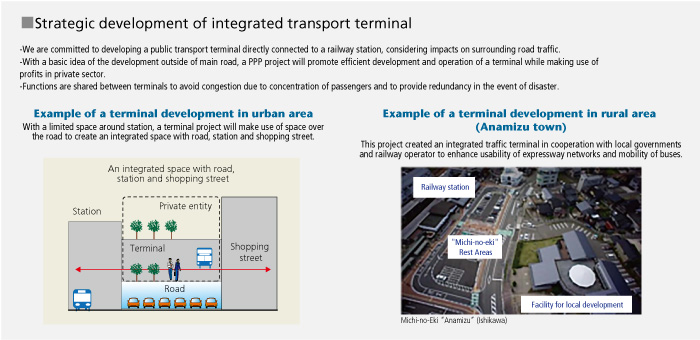
The establishment of a smart transit system that enables efficient transit according to traffic conditions is proceeding.
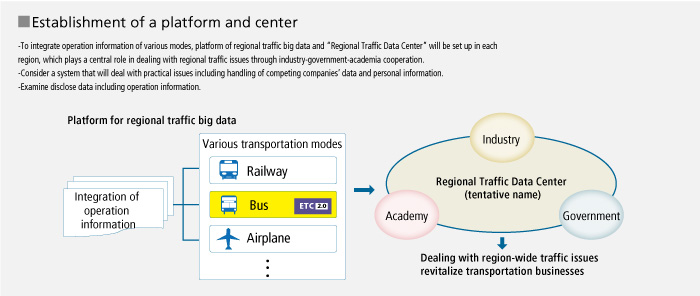
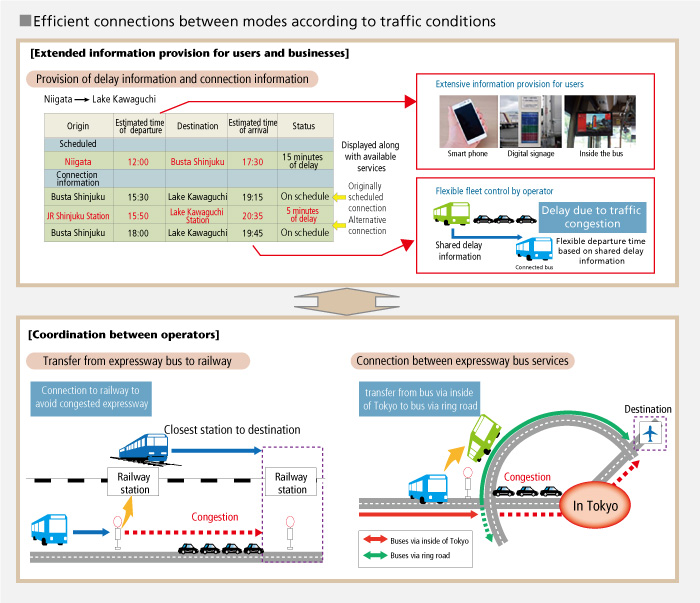
Promotion of the Sharing Services
-Car sharing usership (membership) has increased during the last decade from 6,000 in 2009 to 132,000 in 2018*31.
-The pilot program (on national highway No.1 in Ote-machi and No.15 in Shinbashi) has demonstrated a degree of need for on-road car sharing.
(Need for on-road car sharing: 80% in Ote-machi, 90% in Shinbashi)
-While the number of cities that has introduced a bicycle sharing system has grown in the last 5 years from 54 cities in 2013 (as of Dec 1) to 135 cities in 2018 (as of Mar 31), efficiency needs to be improved by expanding the docks.
○Based on the results of a car sharing pilot program near a railway station, we are introducing this scheme on a trial basis and considering an operating guideline for nationwide implementation.
○Based on the results of a highway bus & car sharing pilot program, we are committed to supporting private businesses helping to expand this service.
○The MLIT is promoting bicycle sharing by encouraging addition of bicycle docks to on-road spaces, existing bicycle-parking areas and other public spaces as well as to premises of private businesses such as convenience stores.
